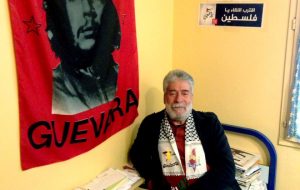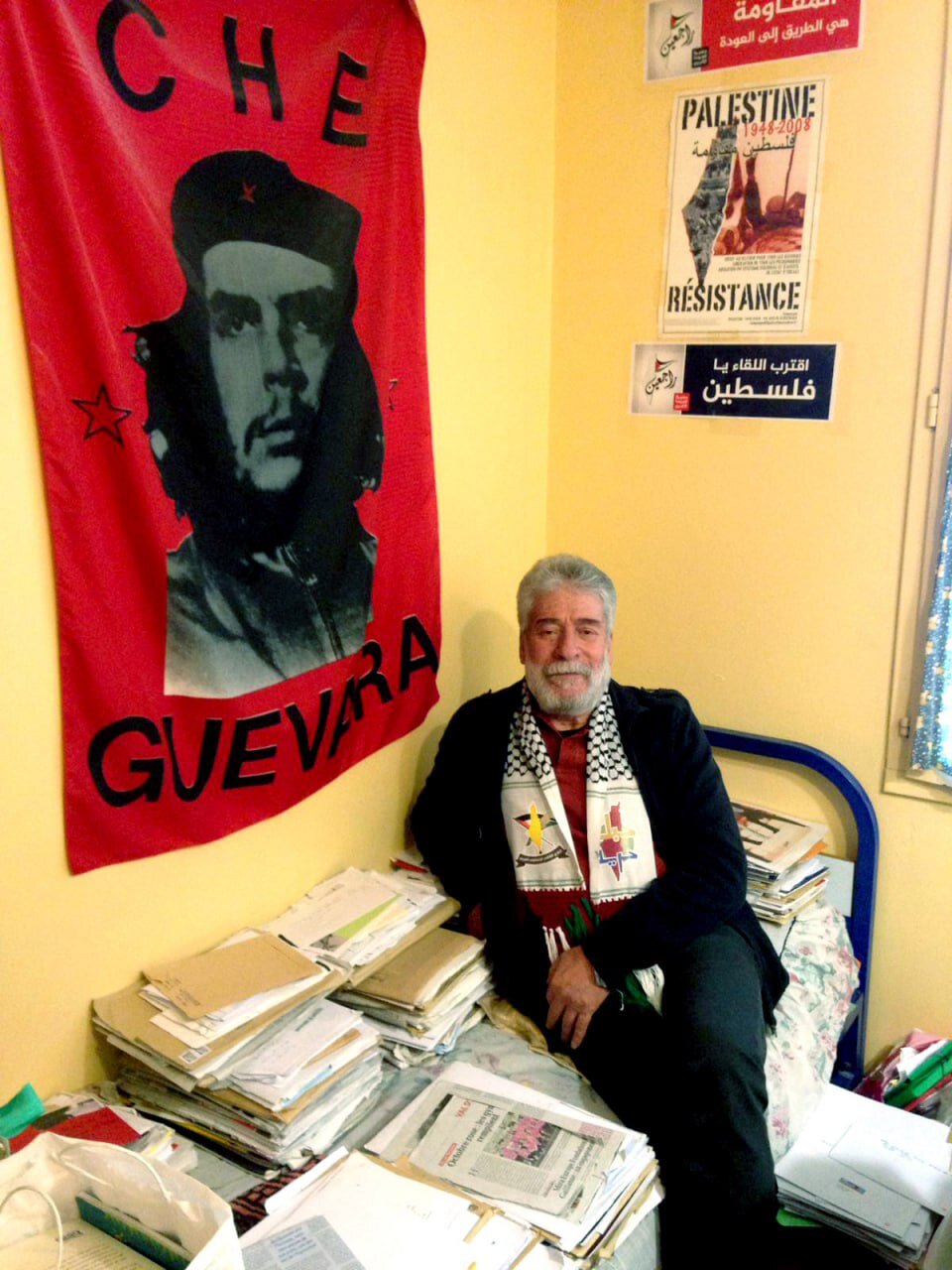Washington continues crusade against Lebanon’s Georges Abdallah
BEIRUT – Despite the French Enforcement Court’s decision in mid-November to release the longest-held political prisoner Georges Abdallah next February, the “Office of External Litigation at the US Department of Justice” is pressing hard to appeal the decision, describing the ruling as “extremely dangerous” and “not in the interests of the United States, France or


BEIRUT – Despite the French Enforcement Court’s decision in mid-November to release the longest-held political prisoner Georges Abdallah next February, the “Office of External Litigation at the US Department of Justice” is pressing hard to appeal the decision, describing the ruling as “extremely dangerous” and “not in the interests of the United States, France or Lebanon.”
George Abdallah was born on April 2, 1951, in northern Lebanon to a Maronite Christian family. He became involved in political work at the age of 15 and completed his studies at the Teachers’ College. In the 1970s, he joined the “Popular Front for the Liberation of Palestine.”
In 1980, GA and others founded the “Lebanese Revolutionary Armed Factions,” an anti-imperialist Marxist movement that claimed responsibility for 5 attacks in Europe between 1981 and 1982 as part of resistance in solidarity with the Palestinian cause.
GA was convicted of complicity in the assassination of Yakov Barsimantov, second secretary of Israel’s embassy in France, and US diplomat Charles Robert Day in Paris in 1982, as well as the attempted assassination of US Consul General Robert Aum in Strasbourg in 1984.
In the statement submitted to the French court, the “Office of External Litigation at the US Department of Justice” points out that GA’s detention was necessary to prevent him from rejoining his “terrorist” family, as he did not abandon his firm position on resistance against any occupation of Lebanon.
The French judiciary has not found any evidence against Abdullah, except for some publications indicating GA’s affiliation with the “Lebanese Revolutionary Armed Brigades,” which was accused at the time of planning a number of resistance operations, and a forged Algerian passport.
When he appeared before the court for the first time, in July 1986, GA was only charged with using a “forged travel document,” according to the memoirs of Jacques Attali, advisor to former French President François Mitterrand.
Besides, the defense team member, lawyer Isabelle Coutin-Bayer, has revealed that on February 28, 1987, GA was suddenly summoned to trial on charges of possessing weapons in his “secret hideouts and apartments,” which the court used as evidence “of his participation in the guerrilla operations carried out by the Lebanese Revolutionary Brigades in France in 1982.”
GA was then sentenced to life imprisonment “despite the defense team’s protest that the evidence was not included in the original case file and was fabricated later.”
In 2001, another member of the defense team, lawyer Jean-Paul Mazurier, admitted in an interview with Libération how French intelligence recruited him to make Abdallah entrust him until he was sent to meet his comrades in the “Revolutionary Brigades” in Lebanon, which made it easier for French intelligence to gather evidence against him.
In 2012, former French intelligence chief Yves Younis also admitted that the trial was a “security conspiracy that violated the law,” adding, “Indeed, we acted like criminals in this case; it is time to put an end to the great injustice we have inflicted on Georges Abdallah.”
On July 6, 2024, Radio France’s investigation broadcasted CIA documents exposing the US pressure – especially from former Secretary of State Hillary Clinton – on Paris regarding GA. The investigation further addressed the responsibility of the former pro-Zionist French Interior Minister, Manuel Valls, who obstructed the ruling to release GA in 2012. It also highlighted the complicity of Jean-Paul Mazurier, who was expelled from the Bar Association in 1987 for his dealings with French intelligence against his client.
The Zionist organization B’nai B’rith launched an intensive campaign against the administration of the University of British Columbia in Canada to prevent the screening of the film “Fedayeen”, which tells GA’s grievance in a bid to prevent the Palestinian narrative from reaching Western public opinion, especially in academic circles, as it always seeks to monopolize universities to criminalize resistance and boycott the occupying entity.
The French judiciary has repeatedly blackmailed GA for his freedom by requiring him to apologize for his honorable past and to repent resistance, which he categorically rejected. In one of the trials, GA famously said: “I am a fighter, not a criminal,” stressing that “the path I have taken was dictated by the human rights abuses committed against Palestine.”
“In previous years, we were suffering from intimidation campaigns and disinformation against GA and his family in the French press,” says Alain Boujoula, one of the founders of the GA Liberation Collective and the New Anti-Capitalist Party (NPA).
Until his supposed release in February, the alleged “integrity” of the French judiciary will be tested again, knowing that GA’s case has been marred – for 40 years – by a lot of intrigue and politicization in flagrant violation of French laws that stipulate that those sentenced to life imprisonment must be released after a maximum of 18 years, meaning that GA’s release was due in 1999.
